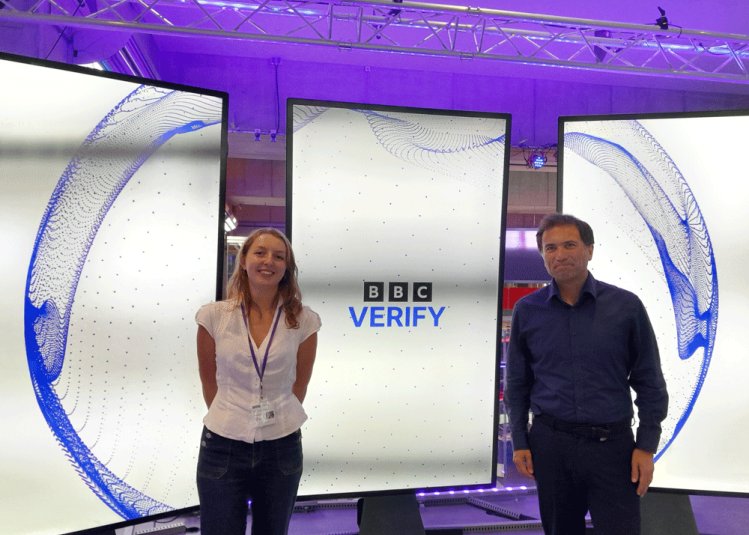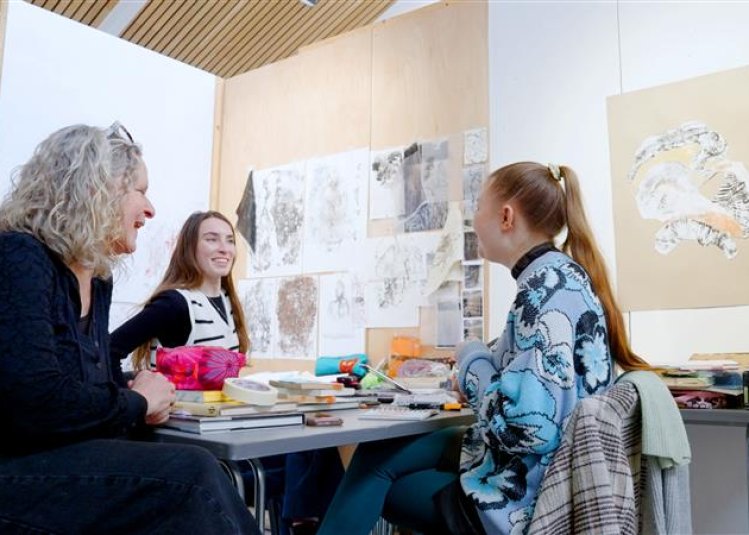Creating my first game on the Indie Game Development MA (Online) course
22 July 2025

This article was written by Indie Game Development MA (Online) student Olly.
Making a video game from scratch might sound like a huge challenge, and parts of it certainly are, but it is also one of the most rewarding things I have done so far on this course. I am Olly Musson, an online postgraduate student on the MA Indie Game Development course at Falmouth, and in this blog I am hoping to give you a taste of the process (and the chaos) of indie dev life.
I applied to this course with no background in game development, so I expected it to be massively overwhelming. During the few months between finishing my undergraduate degree and starting this master’s, I crammed in a bunch of tutorials, hoping to prepare. As it turned out, the course is just as welcoming to beginners as it is to professionals. The only prerequisite is a love of games and creating.
One of the biggest surprises was how flexible the learning is. The focus is not on memorising a complex curriculum, but on building games, exploring techniques, and developing whichever specific skills you are interested in. If, like me, you are unsure where to start, there is a huge range of course content spanning many different skills, giving you ample opportunity to experiment.
That's exactly what I did. Before I knew it, we were tasked with creating a small, playable game in just two weeks as part of a ‘Rapid Ideation Session’. The idea was not to make something perfect, but to test skills and try something new.
I decided to build a Japanese zen garden simulator. Players could design and showcase their own miniature gardens using a small range of features like rocks, trees, ponds and raked sand patterns.
I picked this theme because I have lived in Japan and knew the cultural side well, which meant I could focus on development without getting bogged down in research.
My engine of choice was Unity, for two reasons:
- It was the only one I had experimented with in the few months before starting the master’s.
- This was going to be a 2D project, and I had heard Unity excels at that.
While building the prototype, I dipped into basic C# programming and tried to get to grips with a few different reusable scripts, such as simple spawner logic or a singleton pattern audio manager. Just a few months ago, I would not even have been able to spell these terms, but here I was testing them out in my own game.
I also picked up some new software, finally making use of Visual Studio Community, which I had not even heard of before. For those like me who do not know programming, not using an IDE is like trying to build IKEA furniture without the manual: technically possible, but likely to make you cry!
Despite the challenge I faced as a complete programming beginner, there was a wealth of resources I could access as an online student at Falmouth. The weekly content is packed with material on various development techniques, and the teaching team is filled with active industry professionals, so you are never short of help.
In my case, help came from a course mate who had joined the master’s after completing a games programming degree. Convenient, right? In exchange for their help on C#, I showed them around Aseprite, which they wanted to learn for pixel art. It was a perfect trade.
Very quickly, we were both armed with the tools we needed to realise our projects and finish the two weeks with a playable game. These short development cycles are the perfect way to try something new, and the best part is always getting to see (and play) the games your course mates have put together.
For beginners like me, it was about getting my feet wet and seeing what I could create with the skills I have right now. For more experienced students or even professionals, it was about branching out and not feeling tied to the skills they already know.
In one sentence: my experience of building my first game on this course was like being thrown into the deep end, except you have inflatables all around you and a friendly lifeguard nearby. As much of a challenge as it was, I was never in any danger of drowning.
From this, I have gained the confidence to experiment without the fear of failure, possibly one of the most precious skills to an indie developer, given how we must navigate the video game market and constantly strive to innovate. I hope to carry that into all my future projects, during and after my time at Falmouth.
If you are looking to level up as a developer, no matter what stage you are at in your career, in a supportive and highly flexible environment that welcomes a healthy dose of experimentation and risk-taking, then you have found the right place.




